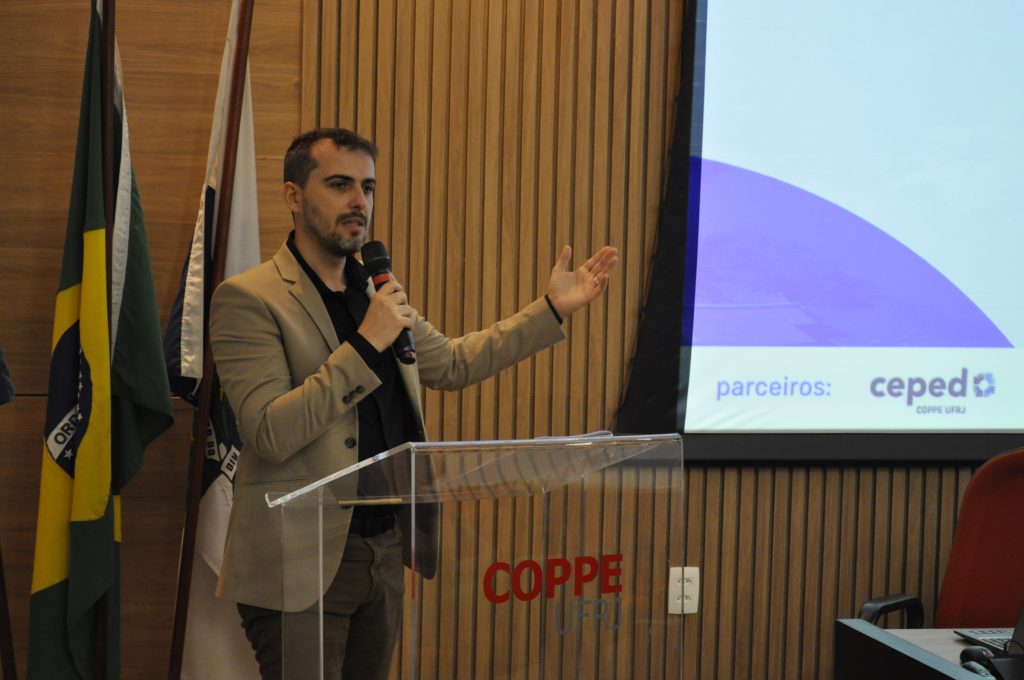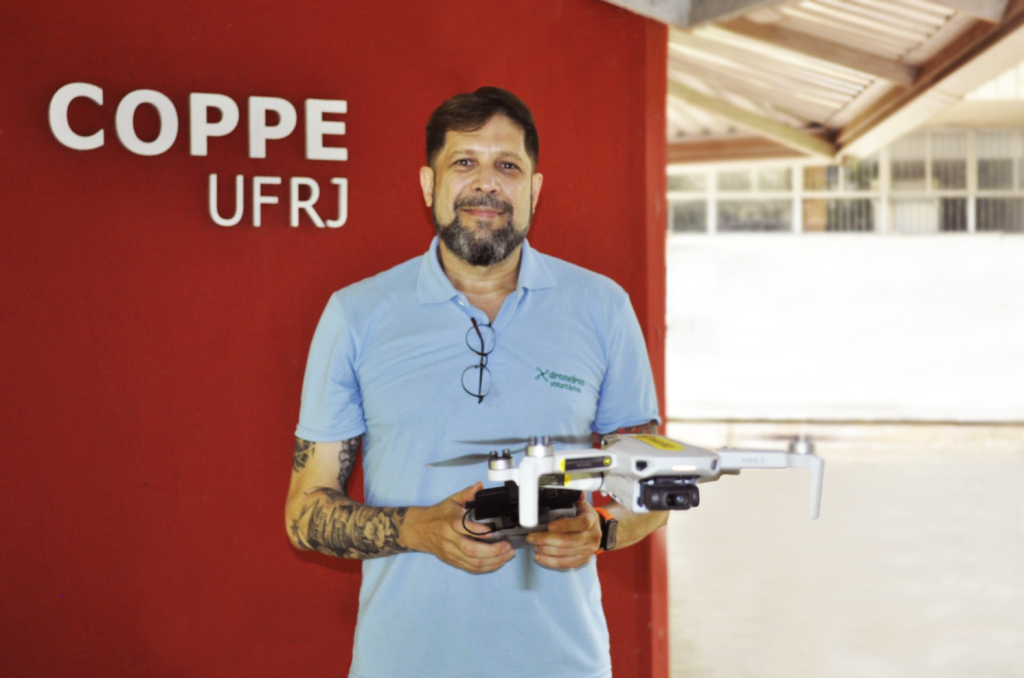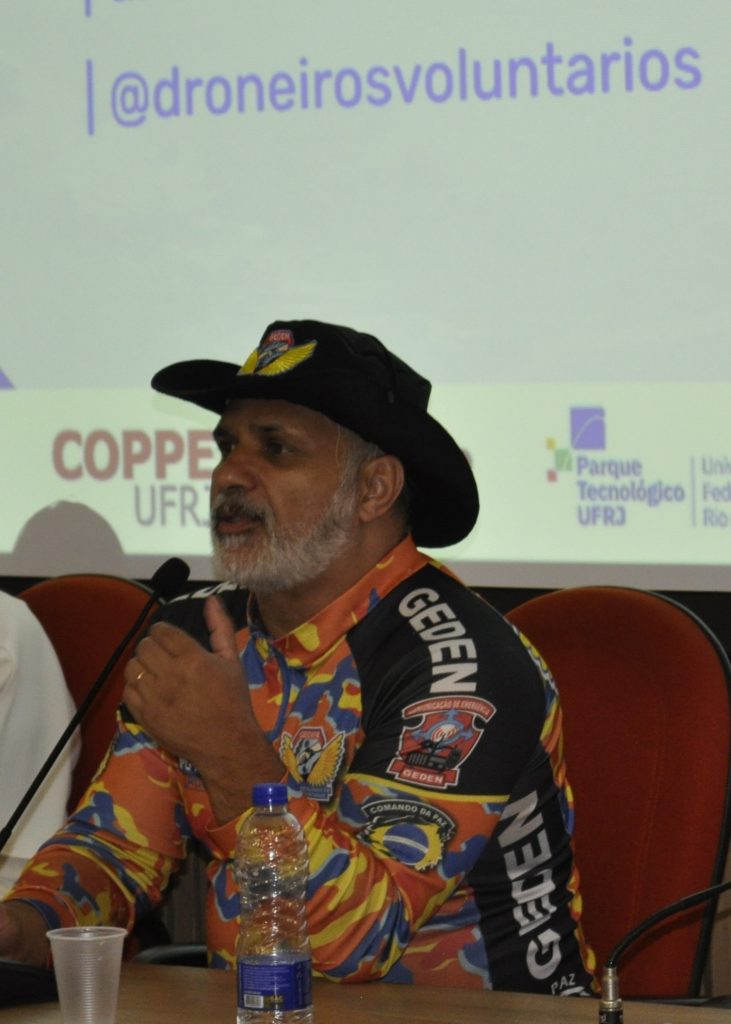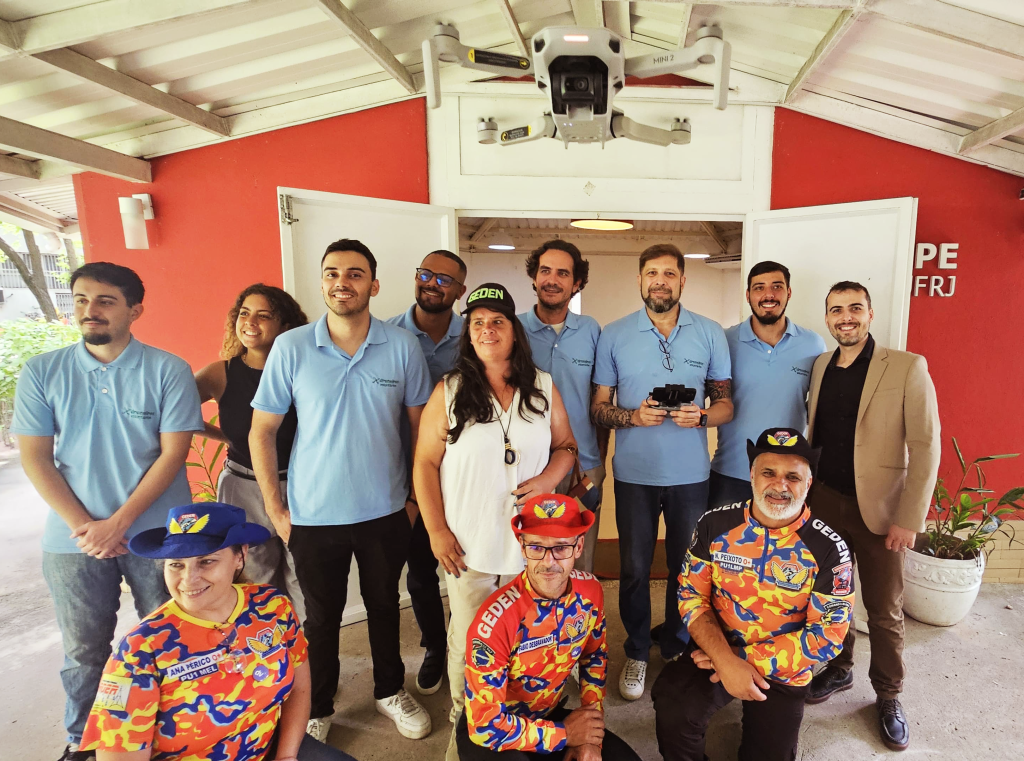Volunteer Drone Pilots: technology and solidarity in disaster management
Planeta COPPE / Industrial Engineering / News
Date: 04/12/2024
Coppe/UFRJ’s Center for Engineering Studies and Research on Disasters (Ceped) launched, on December 2nd, the Volunteer Drone Pilots platform, an innovative initiative that connects recreational drone pilots to the demands of public bodies and Civil Defense in disaster situations. The event, which was held at Coppe’s auditorium, in Block G-122 in UFRJ’s Technology Center, gathered specialists, researchers and volunteers involved in disaster management.

Developed based on Renan Caldas’ doctoral thesis, under professor Tharcisio Fontainha’s supervision, of the Industrial Engineering Program (PEP), the platform aims to integrate accessible technology and organized volunteering to mitigate natural disaster impacts. “This project demonstrates how academia can work alongside society, the private sector and volunteers to face disasters in an integrated and multisectoral way, that goes beyond governmental action”, highlighted Fontainha, Ceped coordinator.
A socially impactful innovation
The platform allows bodies such as the Civil Defense and the Natural Disasters Specialized Group (Geden) access to a database of volunteer drone pilots, with information regarding equipment, flight range and availability. The business model was successfully tested during the 2022 disasters in Rio de Janeiro’s Mountain Region. Renan highlighted the drone efficiency, which allows fast and detailçed mapping, essential to critical moments.

With the increasing frequency of natural disasters, the Volunteer Drone Pilots platform becomes even more relevant, providing an accessible and efficient alternative for monitoring and rescuing, with lower costs compared to helicopters. “A helicopter’s flight hour is extremely expensive and depends on specific climate conditions. Drones are an accessible and efficient alternative for monitoring, rescuing and mapping affected areas.” explained Renan.
The innovation was also highlighted by Leonardo Dias, PEP doctoral student, who shared his experience in using drones to inspect risk areas and assist the Civil Defense. For him, the use of drones is essential in disaster management. “In 2022, during the disaster in Petrópolis, I accompanied the Civil Defense as a volunteer. A week after the event, we used drones to inspect an area that hadn’t been attended to due to demand overload. In about an hour of flight and another hour of image processing, we covered 1 km and identified landslide scars that satellite images could not detail. The drone images allowed the Civil Defense to identify with precision the affected houses. Drone use is a path of no return in disaster management”.
The project is seen as a milestone in organizational innovation. Francisco Duarte, PEP coordinator, stated that the platform not only represents a technological advance, but also a dialogue between academic research and the real needs of the population. Cleide Lima, Outreach director at Coppe, reinforced the science outreach nature of the initiative, highlighting the practical application of academic research.
The Drone Revolution in Rescue and Disaster Prevention

The introduction of drones in the rescue operations has been transformative, as highlighted by Neném Peixoto, the creator of Geden. He emphasized how technology improves the safety and efficiency of operations, allowing risks to be identified before teams enter dangerous areas.
“Drone technology changed completely the way we handle rescues, risk area analysis and inspections. Nowadays, it is impossible to think of an efficient database or detailed inspection without considering the use of drones. In addition to saving time in critical moments, they save the lives of those at the location and also of those who need to go in to rescue the victims”.
Neném emphasizes a crucial point: the risk faced by Civil Defense agents and firemen in disaster situations.
“In the past, professionals often needed to enter dangerous areas without accurate information about the conditions of the location. How many agents lost their lives trying to save people in situations where there was no way to verify whether the location was safe? With drones, danger can be identified beforehand, protecting who is there to help and increasing the chances of successful operations”.
Civil Defense Secretary of Petrópolis, Rodrigo Werner, emphasized the importance of preparing volunteers and providing them with adequate training to work in adverse conditions.
The Volunteer Drone Pilots platform is a clear example of how technology can be combined with solidarity, uniting drone pilots and public bodies to save lives and reduce economic and social impacts, reaffirming Coppe’s commitment to the integration of science, technology and society.

